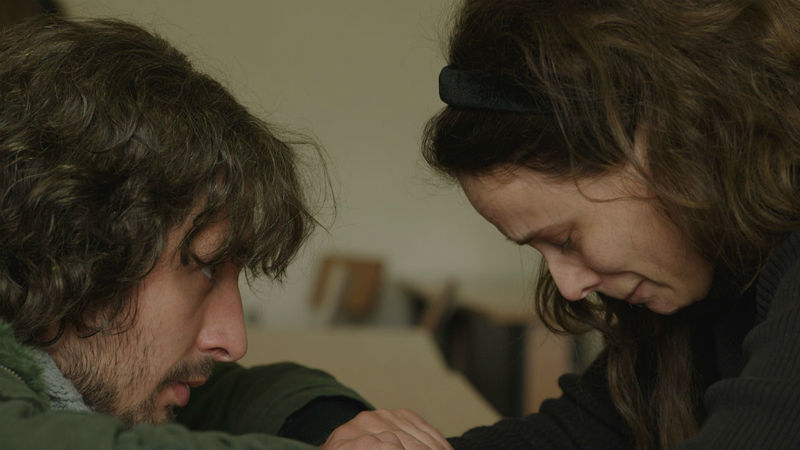QUICK AND DIRTY: LIVE FROM TALLINN
Dragos is a 40-something-year-old Romanian director. His parents are German Transylvanians, a minority that fled into exile in large numbers during the oppressive Ceausescu’s years (between 1965 and 1989). He wishes to make a movie about their experience, but he begins to unveils secrets that could compromise his relationship with his mother (Ana Ciontea), his father (Adrian Titieni ) and also his loving partner Alina. Mum and dad quickly begin to break down. Verbal abuse, threats and even physical violence become commonplace as Dragos continues to scrutinise their past against their will. Alina too is despondent: she believes that Dragos is cheating on her with his beautiful and devoted assistant director, writer and actress Illona (Iulia Lumânare).
These tribulations have little impact on Dragos. He’s a cold, calculating and manipulative man who rarely allows his sentiments to surface. He is also vaguely chauvinistic and sadistic, plus he enjoys the God complex that many male filmmakers (both nascent and established) possess. He does experience fear and depression, however he keeps those at bay by taking anxiolytics rather than asking his loved ones for comfort and solace (after all, big boys don’t cry). He isn’t an entirely objectionable person, though. He is a familiar male stereotype: the ruthless, hard-working and uncompromising professional. His ambitions prevail over everything and everyone else.
Familiar is a film about family and state secrets that become inexorably intertwined. The topics of failed parenthood and mistaken identity help to support the investigative narrative. Dragos and Illona dig deep into his family history. They find out that Dragio’s mother may have fled the country in order to join a lover called Harald Stern, who settled in Hamburg after presumably defecting from Romania years earlier. More twists and turns throw their first conclusions into disarray. Declassified Securitate (the Romanian equivalent of the Stasi or the KGB) papers suggest that Harald may have been an informant, and that Dragos’s mother may have had ulterior motives for her move abroad, something she denies vehemently. Mother and father confront each other furiously with a very different version of events. Truth becomes increasingly elusive as further secrets and documents are revealed. Nothing is quite what it seems. Defectors, traitors and informants could shift the course of the investgation, just as they did with the history of Romania, a country that experienced profound changes of all sorts – social, economic, political and cultural – since the demise of communism. At one point, the mother begs Dragos to subvert the story at his convenience: “Make something up, it’s a film after all”. It’s almost as if she was talking to the real-life director Călin Peter Netzer.
At 106 minutes, this family drama is supported by satisfactory performances and an apposite script. On the other hands, it lacks the punch-on-the-face factor. While mostly credible and coherent, the story is a little esoteric, and may not be fully enjoyed by non-Romanians. The visuals aren’t particularly ravishing. DoPs Barbu Bălășoiu and Andrei Butică strive for inventiveness, but some of the devices are just banal. For example, a split screen that serves neither a visual nor a narrative purpose is employed randomly in different parts of the film.
Romanian director Călin Peter Netzer won the prestigiouswon the Silver Bear at the 67th Berlin International Film Festival for Outstanding Artistic Contribution, in 2017, with the riveting Ana, Mon Amour. This is an acceptable however modest addition to the filmography of the award-winning filmmaker.
Familiar just premiered in the Official Selection of the 27th Tallinn Black Nights Film Festival.










